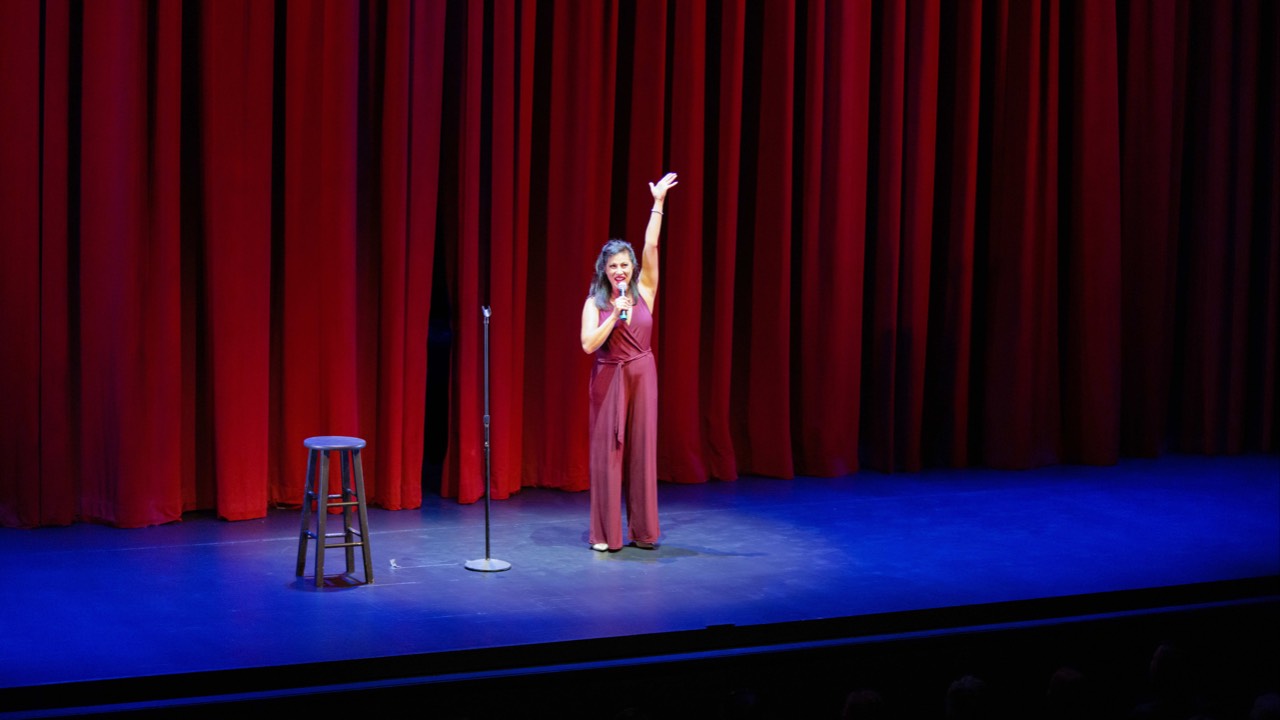A Blog Designed to Help You Become a Better Speaker
🎭 The Unexpected Power of… an Apple? (Or, Why Props Make Your Speech 10x Better)
When I used to teach acting, my most "challenging" students—the ones who overacted or couldn't quite connect—got a very specific prop from me: food.
Yep. Real food.
Why? Because you can’t fake eat.
When you’ve got a mouth full of chips or a slice of pizza in your hand, you stop performing. You just say the line. And suddenly, it's real. It's grounded. It's human.
I once had a student eat his way through an entire play. And every. Single. Line. Sounded authentic. Why? Because the prop pulled the performance out of him, not the other way around.
And this technique? It works in the speaking world too.
One of the most powerful monologues I ever saw was just a man, a pocket knife, and an apple. He slowly sliced the fruit as he spoke. No theatrics. No gestures. Just... presence.
(Okay, don’t bring a knife on stage—I’m not trying to get you tackled by TSA. 😅)
But the idea stands: A personal prop—something meaningful that connects to your message—can elevate your story instantly.
👉 ...
🎤 Master the Mic: How to Hook Your Audience in 30 Seconds (or Less)

Let’s be real—today’s audiences have the attention span of a caffeinated squirrel. With phones buzzing, brains multitasking, and minds wandering, grabbing your audience's attention isn’t just important—it’s survival. As a speaker, you've got seconds to go from "meh" to "Whoa, tell me more!" So how do you nail that opening moment and keep people leaning in instead of checking out?
Let’s break down the art (and science) of audience engagement—starting with the first 30 seconds.
🔥 Why Your Opening Line Can Make or Break Your Speech
First Impressions Are Everything
Think of your opening as your mic drop moment—only it’s at the start instead of the end. It's your first chance to say, “Hey! This matters. YOU matter. Stick with me.”
A strong hook does three things:
- Grabs attention like a Netflix trailer.
- Builds curiosity about what’s coming next.
- Creates connection so the audience feels like you “get” them.
Fall flat in the first 30 seconds, and it doesn’t matter how b...
If You Think You Are There to Educate An Audience -You're Wrong
The number one most boring speakers are those who think they are teaching us something. They drone on with points, information, graph filled slides and zero thought to the audiences emotional journey.
In acting, there is something called, "The Moment Before". This is a question you ask your self regarding your character the moment they before they come on the stage.
If the character enters the stage and has a line, "Hey, are you in here?" the line can read VERY differently I regards to what happened the moment before.
Here are some examples:
*They just woke up from falling asleep on the lounge chair outside.
*They just ran 10 miles to get home after their car was stolen.
*They just won the lottery.
What happens the moment before makes the same line mean VERY different things.
I like to use this analogy, because your audience has a "moment before" you walk on the stage. They way they are feeling, or what they are thinking is VERY different which means your talk will go VERY dif...


